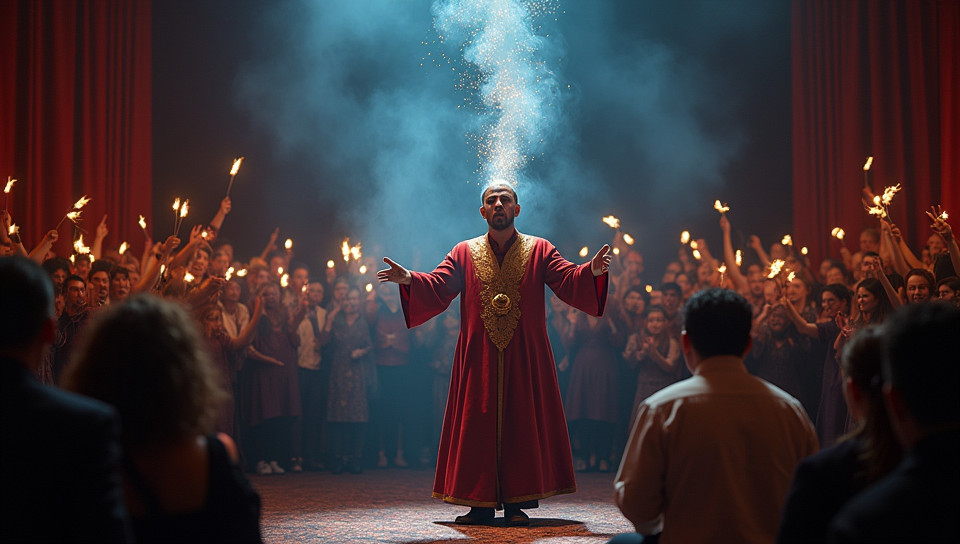Magic shows entertain people 18%

The Power of Illusion: Why Magic Shows Continue to Entertain
As the curtains draw open, the lights dim, and the anticipation builds, magic shows transport audiences to a world of wonder and awe. With a flick of the wrist or a whispered secret, magicians weave a spell that captivates and delights. But what is it about magic shows that continues to entertain people around the globe?
The Art of Misdirection
Magic shows are more than just tricks and illusions; they are an art form that requires skill, creativity, and showmanship. Magicians use misdirection to distract the audience from the method behind the magic, creating a sense of mystery and intrigue. By expertly manipulating attention and perception, magicians create an experience that is both thrilling and unforgettable.
The Psychology of Wonder
Magic shows tap into our fundamental desire for wonder and awe. As children, we are fascinated by the world around us, and magic shows allow adults to recapture some of that sense of enchantment. By pushing the boundaries of what is possible, magicians inspire us to see beyond the ordinary and to imagine a world where anything can happen.
The Social Experience
Magic shows are often a social event, bringing people together in a shared experience of wonder and delight. Whether it's a family outing or a night out with friends, magic shows provide a unique opportunity for connection and community-building. By creating a sense of shared excitement and anticipation, magicians bring people together in a way that transcends age, culture, and background.
The Timeless Appeal
Despite the rise of digital entertainment and social media, magic shows continue to captivate audiences around the world. There's something timeless about the art of magic, something that speaks to our deep-seated desire for wonder and enchantment. Whether you're a seasoned magician or just discovering the world of magic, there's no denying the enduring appeal of this ancient art form.
- Here are some key reasons why magic shows continue to entertain people:
- They offer a unique blend of mystery, skill, and showmanship
- They tap into our fundamental desire for wonder and awe
- They provide a shared social experience that brings people together
- They have a timeless appeal that transcends age and culture
Conclusion
Magic shows are more than just entertainment; they're an experience that inspires us to see beyond the ordinary and to imagine a world where anything is possible. By combining skill, creativity, and showmanship with a deep understanding of human psychology, magicians create an experience that continues to captivate audiences around the globe. Whether you're a seasoned magic fan or just discovering the art of magic, there's no denying the power of illusion and the enduring appeal of this timeless art form.
- Created by: Marcia Santos
- Created at: Jan. 7, 2025, 12:44 p.m.
- ID: 17393
